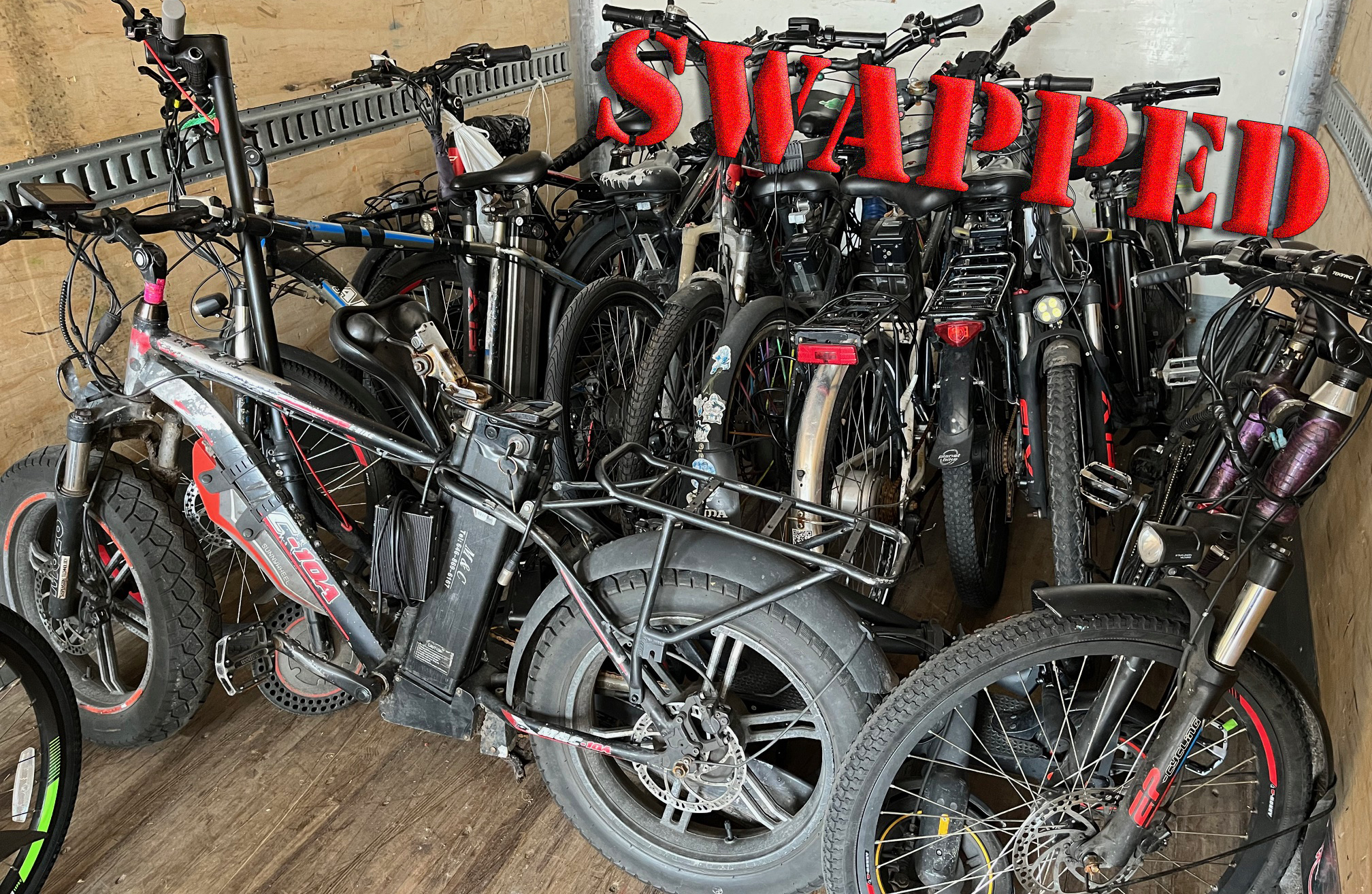One of the city’s most dangerous industries is getting a major pedal-assist from a coalition of advocates committed to making food delivery work safer.
Dozens more delivery workers exchanged used two-wheelers — with hazardous batteries — for new e-bikes with safer ones at a trade-in event last Thursday on the Lower East Side organized by the Equitable Commute Project and Los Delivery Boys. More than 100 old bikes have been swapped so far in this fashion.
“It’s an upgrade to the bike that’s popular with delivery workers, but these batteries are certified,” said Melinda Hanson, co-founder of the Equitable Commute Project and founder of Brightside City. “You can tell that those batteries on their older models are not made for those bikes and they’ve been retrofitted onto them.”
The group’s bike swap efforts arose after city lawmakers passed a package of safety bills in response to more than 200 fires causing six deaths that were sparked by malfunctioning lithium-ion batteries in 2022. Last year, the City Council prohibited the sale of e-bikes with uncertified batteries and created a city-subsidized buy-back program that would swap out old bikes for new at a heavily discounted price.
Mayor Adams supported the measure, but the program which the Fire Department and other agencies were supposed to launch this year, has languished for months. After weeks of inquiry, a City Hall press officer recently told Streetsblog that the Department of Transportation would manage the program, whose start date is unknown.
Instead, nonprofits and private companies have filled the gap in city action and also helped defer costs as electric mobility gets more expensive.

The Equitable Commute Project, which includes Transportation Alternatives, NYU Stern Center for Sustainable Business, and the Bronx-based community bank Spring Bank, organized its e-bike swap in celebration of its 100th trade-in. Reps from DoorDash, the online food ordering middleman that employs delivery workers, and Fly E-Bike, the six-year-old electric bike, scooter and motorcycle manufacturer that provided the new bicycles, were also present.
At the event, deliveristas dropped off their old bikes and received Fly-11 Pro e-bike models with UL-2849 certified batteries that can provide eight hours of charge and are about as likely to catch fire as a cell phone (bike shop operators recommended charging every four to five hours and having an extra battery you can sub instead).
Such e-bikes normally retail for $2,000, but deliveristas paid as little as $800 to $900 by filling out an application, sending a picture of their current bike, and proving that they made $500 with Uber Eats or DoorDash in order to become eligible. Many workers also applied for a no-credit-score-required loan from Spring Bank to offset the cost of the bike.
Luis, a Bronx delivery worker who primarily delivers food in Upper Manhattan, exchanged his bike to be safer.
“I don’t want my apartment to catch on fire,” he said. “It’s a fear we have. I heard stories about it and saw it on the news. It’s a shared concern in our community.”
Some delivery workers said they felt pressured by their delivery apps to meet performance goals the companies set. If delivery workers are late dropping off takeout orders, their score can be penalized and their account can even be deactivated.






